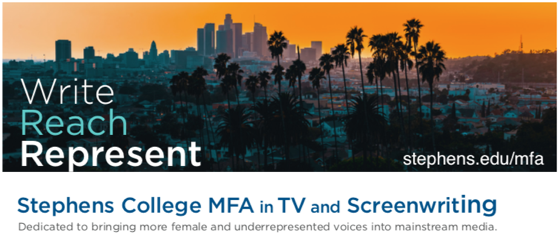Watch this entire presentation
Subscribe to Rosanne’s Channel and receive notice of each new video!
Transcript:
In the early days of Hollywood there were some issues because many of the people who came to write came from New York and they were very “fancy.” They thought they were better writers than that silly screenplay stuff. So when they came to Hollywood they didn’t really take their work seriously. They didn’t ask for too much credit. Edna Ferber I want to talk about for a minute. She was a novelist from New York. The quote I just think is cute. She said “A woman can look both moral and exciting if she also looks as if it was quite a struggle.” So she wrote a lot about early attitudes toward females and sex. She also wrote Showboat which is a classic film in the United States and she wrote Giant which is one of James Dean’s last films and she wrote this film Saratoga Trunk. All based on novels she had written first. She was smart enough when she came to Hollywood to require the studio to lease her novels not to buy the rights. So that they had to credit her and after a few years they couldn’t show the film anymore because it always remained in her possession and that was a brilliant idea but too many other of the New York writers didn’t take their work as seriously and didn’t bother with that idea. So it went away and we lost that chance to own our work.
A Note About This Presentation
A clip from my keynote speech at the 10th Screenwriters´(hi)Stories Seminar for the interdisciplinary Graduation Program in “Education, Art, and History of Culture”, in Mackenzie Presbyterian University, at São Paulo, SP, Brazil, focused on the topic “Why Researching Screenwriters (has Always) Mattered.” I was especially pleased with the passion these young scholars have toward screenwriting and it’s importance in transmitting culture across the man-made borders of our world.
To understand the world we have to understand its stories and to understand the world’s stories we must understand the world’s storytellers. A century ago and longer those people would have been the novelists of any particular country but since the invention of film, the storytellers who reach the most people with their ideas and their lessons have been the screenwriters. My teaching philosophy is that: Words matter, Writers matter, and Women writers matte, r so women writers are my focus because they have been the far less researched and yet they are over half the population. We cannot tell the stories of the people until we know what stories the mothers have passed down to their children. Those are the stories that last. Now is the time to research screenwriters of all cultures and the stories they tell because people are finally recognizing the work of writers and appreciating how their favorite stories took shape on the page long before they were cast, or filmed, or edited. But also because streaming services make the stories of many cultures now available to a much wider world than ever before.
Many thanks to Glaucia Davino for the invitation.
* A portion of each sale from Amazon.com directly supports our blogs
** Many of these books may be available from your local library. Check it out!
† Available from the LA Public Library
Podcast: Play in new window | Download
Subscribe: RSS
![23 Edna Ferber and New York Writers from Why Researching Screenwriters (has Always) Mattered [Video] (1 minute 8 seconds)](https://rosannewelch.com/wp-content/uploads/2020/08/rmw-sao-paolo-23.png)
![Panel Discussion: More Than A Period: Writing Girls Coming of Age Stories For TV [Video] (1 hour 27 minutes)](https://rosannewelch.com/wp-content/uploads/2020/08/sddefault.jpg)



![22 More On The Auteur Theory from Why Researching Screenwriters (has Always) Mattered [Video] (1 minute)](https://rosannewelch.com/wp-content/uploads/2020/08/rmw-sao-paolo-22.jpeg)
![21 Truffaut and The Auteur Theory from Why Researching Screenwriters (has Always) Mattered [Video] (56 seconds)](https://rosannewelch.com/wp-content/uploads/2020/08/rmw-sao-paolo-21.jpeg)
![20 Ruth Gordon & Garson Kanin from Why Researching Screenwriters (has Always) Mattered [Video ] (53 seconds)](https://rosannewelch.com/wp-content/uploads/2020/07/rmw-sao-paolo-20.jpeg)
![Screenwriter Jennifer Maisel from The March Sisters at Christmas, and Tempting Fate from the How I Wrote That Podcast [Audio]](https://rosannewelch.com/wp-content/uploads/2019/08/hiwt-stephens-logo-1-1.png)
![Screenwriter Jennifer Maisel from The March Sisters at Christmas, and Tempting Fate [Audio]](https://rosannewelch.com/wp-content/uploads/2020/07/MFA-program-Jennifer-Maisel.png)

![19 Nunnally Johnson and John Ford from Why Researching Screenwriters (has Always) Mattered [Video] (51 seconds)](https://rosannewelch.com/wp-content/uploads/2020/07/rmw-sao-paolo-19.jpeg)
![18 Nunnally Johnson and The Grapes Of Wrath from Why Researching Screenwriters (has Always) Mattered [Video] (1 minute 11 seconds)](https://rosannewelch.com/wp-content/uploads/2020/07/rmw-sao-paolo-18.jpeg)
![17 Albert Hackett & Frances Goodrich from Why Researching Screenwriters (has Always) Mattered [Video] (1 minute)](https://rosannewelch.com/wp-content/uploads/2020/07/rmw-sao-paolo-17.jpeg)